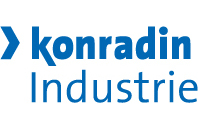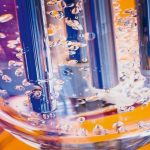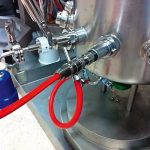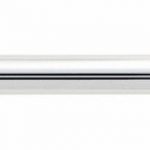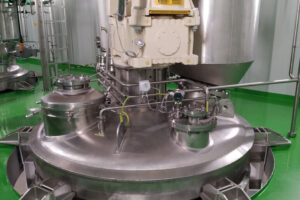Firmen im Artikel
Manufacturing biopharmaceuticals is not only a costly but also – due to their origin, namely living cells – a highly complex and time-consuming process. The cells’ heterogeneity and their sensitivity to chemical influences, such as changes in pH, require profound process understanding. Even very minor changes to process parameters can impact either positively or negatively on the yield and quality of the target molecule, which is why identifying critical parameters and monitoring them continuously is so important.
Process analytical technologies
The cultivation of sensitive organisms in biotechnological processes can best be improved, analysed and controlled using process analytical technologies (PAT). The principle is based on a deep understanding of science and technology as well as on the identification of variables with an influence on the quality and quantity of target molecules. The goal is to monitor critical quality attributes and process parameters through continuous measurements in order to ensure the quality of the final product. PAT puts the emphasis on process understanding rather than on the product itself. The explanation is simple: the quality of the final product is assured if the process is understood in the first place. The critical quality attributes and process parameters, which may vary depending on the culture or target molecule, are first of all identified. After determining the optimal process conditions in this way, they can be set and monitored accordingly within defined limits. This is an important step for the commercial success of the upstream process, in which cells, yeast and bacteria grow gradually. Critical process parameters such as pH, dissolved oxygen or cell growth should be determined continuously and recorded in-line.
pH, dissolved oxygen and cell growth
Cells of different origins have different optimal pH. The ideal pH for animal cells is mostly between 6.8 and 7.4, whereas that for insect cells is slightly lower at about 6.3. If the pH is not ideal, or close to it, this could impact negatively on the cell growth and yield of the desired target molecule. The use of pH sensors is therefore very common when preparing and cultivating media for this purpose. The pH sensors in the Easyferm plus family are compatible with all common controllers and process control systems. They are particularly suitable for all upstream process steps due to their robust design, high measurement accuracy and reproducibility. Another important process parameter is the dissolved oxygen content. The desired oxygen saturation can easily be monitored using the Visiferm DO optical dissolved oxygen sensor. Owing to the optical measurement principle, Visiferm DO needs neither polarisation nor electrolyte refill, unlike the traditional Clark sensors. Furthermore, the measurement is not influenced by the metabolism by-product CO2 as a result of changes in the electrolyte’s pH. The conditions for ideal cell growth are ensured by monitoring and setting optimal values for pH and dissolved oxygen saturation. In-situ measurements of the viable cell density show whether this is successful and the cells grow as expected. The Incyte sensor measures permittivity by only polarising viable cells within an alternating electrical field. An increase in permittivity correlates with growing cell numbers, which can be calculated after preparing a cell type-dependent calibration curve. Continuous permittivity measurements allow conclusions to be drawn about the nutrient supply and the subsequent yield of the target molecule.
Conductivity measurement
The quality of the water used in an upstream process is very important for its success. This applies to the water employed for the production of the culture media as well as to that for cleaning and rinsing. Compliance with the strict requirements for ultra-pure water as defined by the EP and USP pharmacopoeias is crucial. One of the most important parameters is conductivity measurement. The Conducell UPW (ultra-pure water) conductivity sensor measures low conductivities reliably and complies with the requirements of legal pharmacopoeias. The principle is based on measurements of the electrical resistance using a bipolar sensor. As required by the above-mentioned pharmacopoeias, warnings can be issued if the conductivity is too high, so that corrective action can be taken.
Off-line sensor calibration
All the sensor types described here are available in an Arc version. This means that off-line calibration can be conducted in a laboratory under defined conditions because the micro-transmitter in the sensor head stores all calibration data. Using an optional wireless adapter, measured values and sensor information can be sent to a mobile device via Bluetooth. The Arc version thus allows the sensor configuration and calibration to be adjusted in situ, in order to determine and resolve the cause of a malfunction. A robust signal, either 4 to 20 mA or Modbus, and hence smooth and seamless processes are further characteristics of the Arc technology.
Online search: cpp0219hamilton
